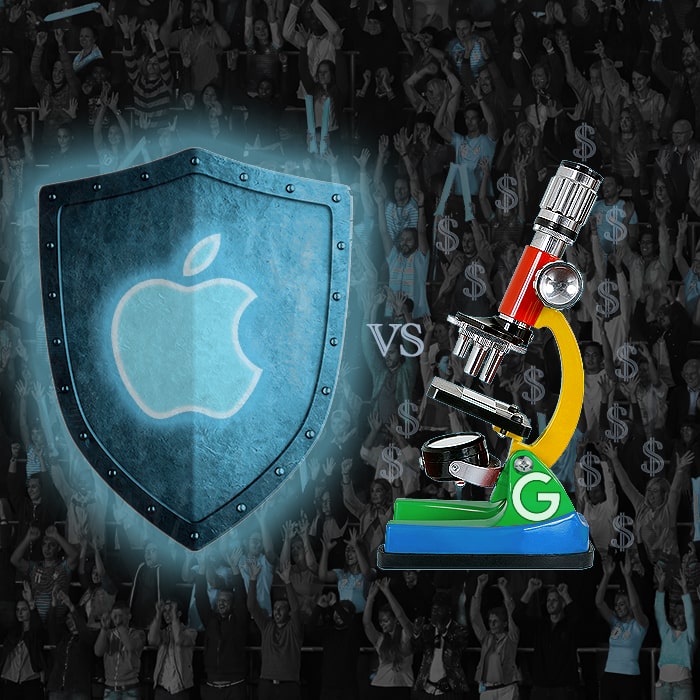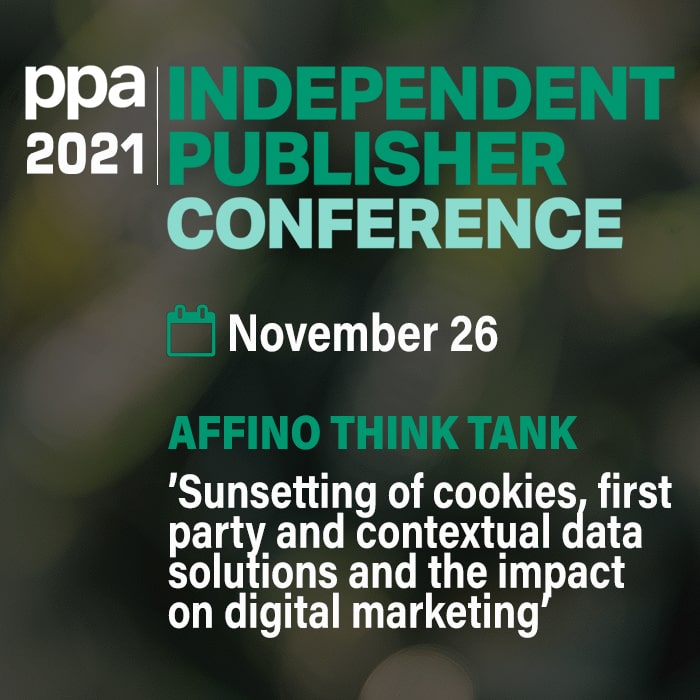Cookie Armageddon Endgame - Google is wholly phasing out 3rd Party Cookies in 2024

It is official now - Google has started phasing out 3rd Party Cookies at last. Initially and for the 1st Quarter of this year - around 1% of Android and Chrome users will have 3rd party cookies locked down in a similar way to how Apple Safari and Firefox have been doing for some years. The remaining 99% will then be weaned off 3rd Party Cookies throughout the second half of this year when using Google applications.
We at Affino have been cautioning the use and reliance on 3rd Party Cookies for 10 years now. It was evident in 2014 that the days of the Cookie were numbered, and that website owners would have to engage in developing solutions for the inevitable withdrawal of those App-connecting and tracking elements.
Why do 3rd Party Cookies Exist?
Most websites are a loose tangle of disparate platforms, fragmented ecosystems, and a myriad of out-of-date databases. These can be joined together in the browser using a combination of the page URL and cookies (small temporary or permanent data packets stored on the browser) Affino foresaw the eventuality that this would come to an end 10 years ago - and has been building its own robust solutions to handle the post-3rd-party-cookie era.
3rd Party Cookies are a brilliant technology. They allow disparate systems to work together to deliver and add to the user experience. They can also provide great insight and analytics. Unfortunately they are open to abuse through data theft, privacy violations, and general criminal activity. Even when they are working as intended, they often greatly slow down the user experience and use up a great deal of bandwidth and energy unnecessarily.
The alternatives to 3rd party cookies are to either use robust server to server APIs, or to use fewer individual platforms, and if possible use a primary unified web platform which is not reliant on 3rd party cookie based plugins in any way. Integrating everything via APIs is also consistently more costly and time consuming than via 3rd party cookies.
What is lost when 3rd Party Cookies are Locked Down
The cookie loss will potentially be very significant for commercially driven websites. Most obviously there will be far less audience data to go around as this can no longer be gathered without users’ permission by random software through a cookie. This includes Google Analytics.
For many - Ad delivery will be majorly compromised as this can no longer be targeted to anonymous users. Marketing, targeting and promotion services rely heavily on 3rd party cookies, as do many subscription and paywall services. In practice though a typical website will be built of a dozen or more technologies integrated using 3rd party cookies - so potentially any service can be affected.
Google's 'Privacy Sandbox'
Over the years, Google has introduced and aborted several cookie replacement programs - including the FLoC flash-in-the-pan. And Google's own current replacement is the somewhat misleadingly named 'Privacy Sandbox' - which does little to protect Users' Privacy concerns - and is most definitely not a Sandbox!
In practice the Privacy Sandbox is in some ways more of a tagging and tracking engine which identifies and tracks like-minded cohorts and their interests and shares this with the websites which users visit.
Many analysts feel that the new approach lacks transparency and ability to opt-out, and indeed is misleading both in the naming and how it is being communicated to the audience. On the whole, privacy consultants are advising caution to anyone thinking of following Google down that particular route - as it contravenes a number of privacy concerns. None of the other browser makers have followed Google down this path either (as far as we know).
We at Affino have long held the view that any and all 3rd Party Cookies can be detrimental to user security and privacy, and on the whole are bad for the environment. The nature of chaining together dozens of disparate platforms also typically leads to an inferior online experience. Considering that the majority of contemporary crime is perpetrated via the Internet - all of us Users need a safer ecosystem to operate within.
Real Privacy
Affino has always done things by the book when it comes to privacy, and GDPR compliance is an essential and pervasive part of Affino’s Business Platform which marshals all via a core-connected single central database and CRM. All Affino audience data is only captured to a profile when permission is given.
Over the years we have introduced a host of permission and zero or first party based solutions which do not require 3rd party cookies. These deliver the full experience, with fully permissioned data capture for all activities. Some key examples include : our Ad tech which is not blocked by any major browser or ad blocker; Affino’s analytics which counts the pages and experiences delivered natively; and all the subscription and marketing services, as well as the fully integrated ecommerce suite.
Not only does the user get a better, more seamless, and safer environment and experience - the site owner is better protected too - with low maintenance across the core systems and data management.
Future Ready Solution
If you're serious about protecting, preserving, and future-proofing your business - then you need to be looking at some sort of Universal / Unified Solution with strong API support - and there are few out there as potent or future-ready as Affino!

Did you find this content useful?
Thank you for your input
Thank you for your feedback
Upcoming and Former Events
Affino Innovation Briefing 2024
Webinar - Introduction to Affino's Expert AI Solutions - Session #2
Webinar - Introduction to Affino's Expert AI Solutions - Session #1
PPA Independent Publisher Conference and Awards 2023
Meetings:
Google Meet and Zoom
Venue:
Soho House, Soho Works +
Registered Office:
55 Bathurst Mews
London, UK
W2 2SB
© Affino 2024





























